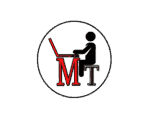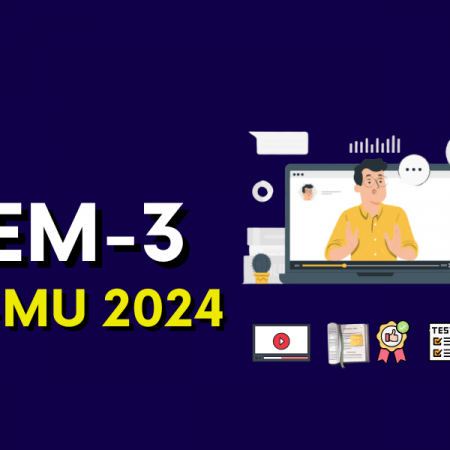Software Engineering Viva Question
₹49.00
₹29.00

Software Engineering Viva Question
Software Engineering is semester 6 subject of final year of computer engineering in Mumbai University. Prerequisite for studying this subject are Concepts of Object Oriented Programming & Methodology and Knowledge of developing applications with front end & back end connectivity.
Objectives of course Software Engineering are the main objective of the course is to introduce to the students about the product that is to be engineered and the processes that provides a framework for the engineering methodologies and practices. To provide the knowledge of software engineering discipline. To apply analysis, design and testing principles to software project development. To demonstrate and evaluate real time projects with respect to software engineering principles. Outcomes of Course Software Engineering On successful completion of course, learners will be able to: Understand and demonstrate basic knowledge in software engineering. Identify requirements, analyze and prepare models. Plan, schedule and track the progress of the projects. Design & develop the software projects. Identify risks, manage the change to assure quality in software projects. Apply testing principles on software project and understand the maintenance concepts.
Software engineering is an engineering branch associated with development of software product using well-defined scientific principles, methods and procedures. The outcome of software engineering is an efficient and reliable software product. Software project management has wider scope than software engineering process as it involves communication, pre and post delivery support etc. Software engineering is the systematic application of engineering approaches to the development of software. Software development, the main activity of software construction is the combination of programming (aka coding), verification, software testing, and debugging. A Software development process is the definition, implementation, assessment, measurement, management, change, and improvement of the software life cycle process itself. It heavily uses Software configuration management which is about systematically controlling changes to the configuration, and maintaining the integrity and traceability of the configuration and code throughout the system life cycle. Modern processes use software versioning. Software testing is an empirical, technical investigation conducted to provide stakeholders with information about the quality of the product or service under test, with different approaches such as unit testing and integration testing. It is one aspect of software quality. Software maintenance refers to the activities required to provide cost-effective support after shipping the software product.
Module Introduction to Software Engineering and Process Models consists of the following subtopics Nature of Software, Software Engineering, Software Process, Capability Maturity Model (CMM).Generic Process Model, Prescriptive Process Models: The Waterfall Model, V-model, Incremental Process Models, Evolutionary Process Models, Concurrent Models, Agile process, Agility Principles, Extreme Programming (XP), Scrum, Kanban mode. Module Requirements Analysis and Modelling consists of the following subtopics Requirement Elicitation, Software requirement specification (SRS), Developing Use Cases (UML) Requirement Model Scenario-based model, Class-based model, Behavioural model. Module Project Scheduling and Tracking consists of the following subtopics Management Spectrum, 3Ps (people, product and process), Process and Project metrics, Software Project Estimation: LOC, FP, Empirical Estimation Models – COCOMO II Model, Specialized Estimation Techniques. Project scheduling: Defining a Task Set for the Software Project, Timeline charts, Tracking the Schedule, Earned Value Analysis. Module Software Design consists of the following subtopics Design Principles, Design Concepts, Effective Modular Design Cohesion and Coupling. Architectural Design. Component-level design. User Interface Design. Module Software Risk, Configuration Management & Quality Assurance consists of the following subtopics Risk Identification, Risk Assessment, Risk Projection, RMMM. Software Configuration management, SCM repositories, SCM process. Software Quality Assurance Task and Plan, Metrics, Software Reliability, Formal Technical Review (FTR), Walkthrough. Module Software Testing and Maintenance Strategic consists of the following subtopics Approach to Software Testing, Unit testing, Integration testing Verification, Validation Testing, System Testing Software Testing Fundamentals, White-Box Testing , Basis Path Testing, Control Structure Testing, Black-Box Testing, Software maintenance and its types, Software Re-engineering, Reverse Engineering.
Suggested Texts Books for machine learning by Mumbai University are as follows Roger Pressman, Software Engineering: A Practitioner‘s Approach”,McGraw-Hill Publications. Ian Sommerville, Software Engineering, Pearson Education (9th edition). Ali Behfrooz and Fredeick J.Hudson, “Software Engineering Fundamentals”, Oxford University Press. Suggested Texts Books for machine learning by Mumbai University are as follows Ugrasen Suman, Software Engineering Concepts and Practices, Cengage Learning . Pankaj Jalote, “An integrated approach to Software Engineering”, Springer/Narosa. Jibitesh Mishra and Ashok Mohanty, Software Engineering, Pearson. Rajib Mall, “Fundamentals of Software Engineering”, Prentice Hall India.
Prepare For Your Placements: https://lastmomenttuitions.com/courses/placement-preparation/
![]()
/ Youtube Channel: https://www.youtube.com/channel/UCGFNZxMqKLsqWERX_N2f08Q
Follow For Latest Updates, Study Tips & More Content!
Course Features
- Lectures 6
- Quizzes 0
- Duration 50 hours
- Skill level All levels
- Language English
- Students 37
- Certificate No
- Assessments Yes



